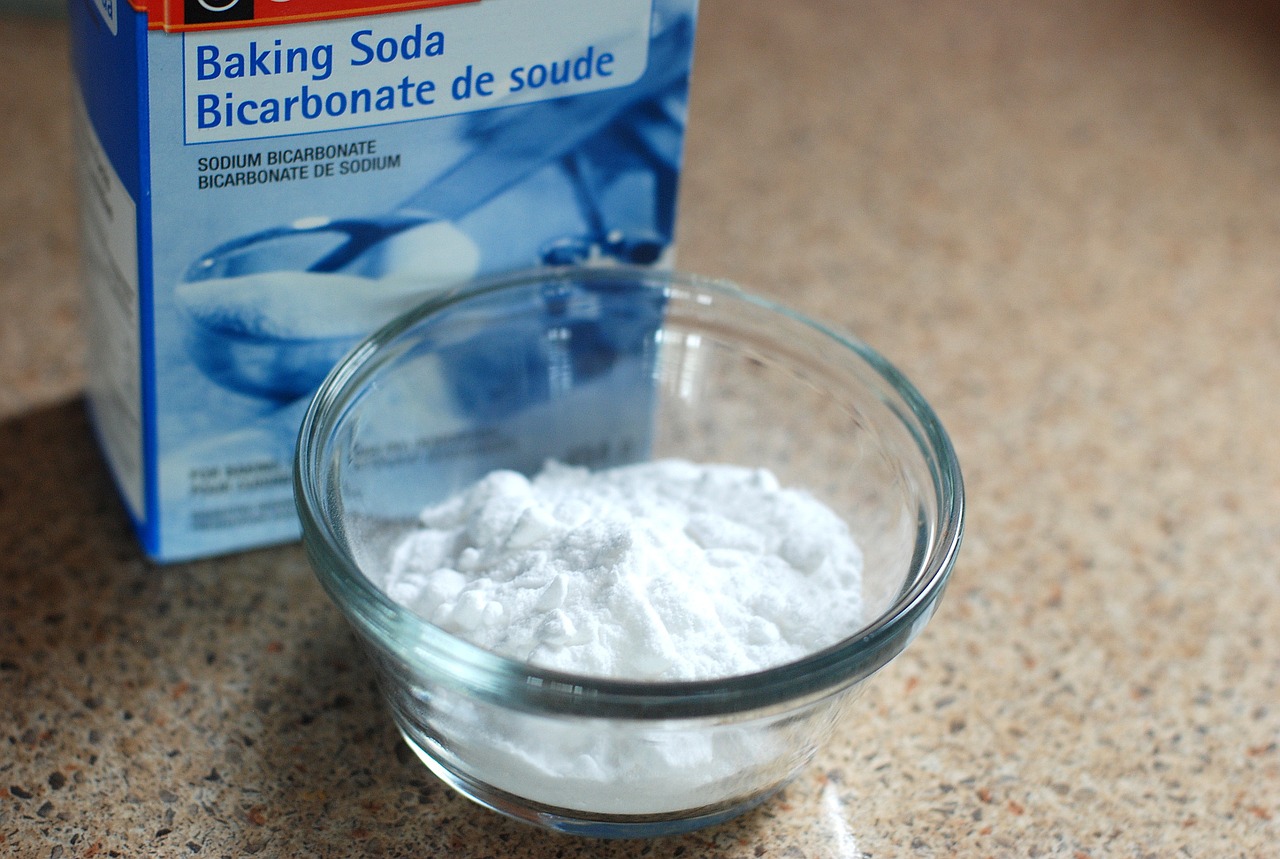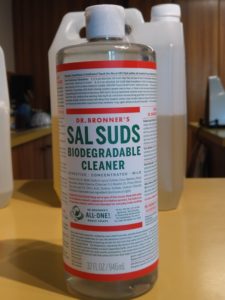
This page contains affiliate links to products. We may receive a commission for purchases made through these links.
In an earlier post I wrote about using a strategy to help you gather the ingredients you need to make DIY Low tox Household products. I have now written a few posts that mention ingredients so I thought it was time to make a list of the most common ingredients you will need and provide some more detail about where I find them. Researching the ingredients you need is time consuming and it took me a few months to build up my stocks. This first post (Part 1) provides details on the ingredients I use all the time. In future posts I will give details about some of the ingredients that I use less frequently, some of the tools you will need to make your DIY products and the containers you will need to store your products.
Using Essential Oils as Ingredients
Firstly, the easy part i.e. the Essential Oils. If you have a good supplier then you are in a position to find what you need easily. Many products I make include Essential Oils. In the early days when I didn’t have many oils, I used to be discouraged when I read a recipe that included oils that I didn’t have. But as I learned more about the oils I found that it was possible to substitute because many oils have similar properties. If you are unsure, look it up, ask your ‘oily friends’ or ask me! Happy to help.
* Before I go on I just want to let you know that I have added some links to my doTERRA webpage throughout this post so you can check out any of the oils I mention.
Ingredients I Use Every Week
Once you have an idea of the products you want to make (you might like to go back to the post I wrote about sorting out your priorities before jumping in!!) you can start to think about the other ingredients you will be needing. I have listed quite a few ingredients below with explanations of what they are and what I use them for. These are ingredients that I use all the time – indeed, every week! I have included links to the suppliers I use the most and links to Amazon US, UK and Australia. I hope this is helpful for you!
|
Ingredient |
Description and Uses in Your DIY products | Sources and Prices |
Links to Amazon Suppliers |
|
Bicarbonate of Soda |
Commonly known as baking soda. It is used in cooking but is also useful in a range of cleaning products, and deodorant. | Supermarkets and hardware stores sell this product in 1 kg and 500 g packs.
|
Click HERE for Amazon US Suppliers Click HERE for Amazon UK Suppliers |
|
Borax |
Borax is also known as sodium borate, sodium tetraborate, or disodium tetraborate, is an important boron compound, a mineral, and a salt of boric acid. It is can be used in cleaning products including dishwasher tablets. | Supermarkets and hardware stores sell this product in 500 g packs. I have only used two containers in 12 months. |
Click HERE for Amazon US Suppliers Click HERE for Amazon AUS Suppliers |
| Castile Soap |
Castile soap is vegetable based, biodegradable soap and can be purchased as liquid or solid soap. Traditionally it was made with olive oil but can also be made from a range of vegetable sources including from hemp, coconut, castor, walnut, avocado or almond oil. This soap is used in many products including handwash, shower gel, clothes washing, dish washing, bug repellent and make-up remover. It will become one of your key ingredients! |
The best-known brand of Castile soap is Dr Bronner’s. It is available from a few online companies in Australia including AdoreBeauty, Dr Bronners’s All-One and Mr Vitamins (they stock 3.78L Bottles). I now buy 5L from Aussie Soap Supplies for around $75. Still not cheap but 5L lasted me for around 6 months. I just found another supplier: Range Products who sell 5L for $44. Add on around $20 postage for both of these suppliers. |
Click HERE for Amazon US Suppliers Click HERE for Amazon UK Suppliers
|
|
Citric Acid |
Citric acid is a weak organic acid that occurs naturally in citrus fruits. It is a helpful ingredient for cleaning products and bath bombs. | You can buy citric acid in the supermarket but it comes in tiny containers and costs a bomb! I buy it in 500 g-1 kg tubs. It is available from a number of suppliers including New Directions, Aussie Soap Supplies, and Range Products. A 1 kg tub will cost anything from $6-12 and will last for a few months. |
Click HERE for Amazon US Suppliers Click HERE for Amazon UK Suppliers Click HERE for Amazon AUS Suppliers
|
|
Coconut oil (the fractionated and the solid types) |
Coconut oil is an edible oil extracted from the kernel or meat of mature coconuts harvested from the coconut palm. When using for DIY it is important that you realise that you will need two different products, the oil that solidifies and the oil that is liquid. This type of oil is fractionated (FCO). The longer chain fatty acids in the oil have been removed so it remains liquid. FCO is often used for dilution of Essential Oils. The oil that solidifies is used in products such as whipped creams and balms and deodorants. | Both products can be purchased in the supermarket. These are food grade oils. For dilution of Essential Oils you may prefer to use Fractionated Coconut Oil purchased from the chemist or from doTERRA. |
Click HERE for Amazon US Suppliers of FCO. Click HERE for Amazon UK Suppliers of FCO. Click HERE for Amazon AUS Suppliers of FCO. |
|
NaCl (Salt) |
This one should be self-explanatory. Most recipes you find will specify rock salt of pink salt or Himalayan salt. | This is available in the supermarket. I don’t us the fancy salt but I do use the coarse product. |
Click HERE for Amazon US Suppliers Click HERE for Amazon UK Suppliers
|

|
Sal Suds |
Sal Suds is a balanced formulation of naturally derived surfactants with pure fir and spruce essential oils. Sal Suds is not soap-based and is formulated especially for all-purpose hard-surface cleaning. I use this as an ingredient in my dishwashing liquid. | You won’t find this in your supermarket. There are a number of suppliers in Australia. It’s not cheap! Here a few suppliers for you: Natural Health Organics, Sprout Market (you have to be a member if you want to buy online but they have a shopfront in Sydney CBD) and RCH NATURALPRODUCTS. I can’t find a supplier that provides a good discount on this product. |
Click HERE for Amazon US Suppliers Click HERE for Amazon UK Suppliers
|

|
Sodium carbonate |
This is also called washing soda. It is used in a few products including dishwashing liquid and dishwasher tablets. | This is available in the supermarket. |
Click HERE for Amazon US Suppliers Click HERE for Amazon UK Suppliers Click HERE for Amazon AUS Suppliers |
|
Vinegar |
Vinegar is an aqueous solution of acetic acid. I can be used as a base for a range of products, including cleaning solutions, weed killer and bug spray. | This is available in the supermarket. |
Click HERE for Amazon US Suppliers Click HERE for Amazon UK Suppliers Click HERE for Amazon AUS Suppliers |
|
Vodka |
Vodka is a clear distilled alcoholic beverage. It can be used as a base for sprays, for example room spray, bug sprays and hand sanitisers and to spray onto homemade soap to remove bubbles! | This is available in some supermarkets or bottle shops/off license. |
Click HERE for Amazon US Suppliers Click HERE for Amazon UK Suppliers
|
Saving Time and Money
I have to say that I would not recommend making your own household products if your main reason is saving money, My reason was to reduce the amount of toxic chemicals in my house and initially I spent more money than I should because I was working blind in terms of suppliers etc. But once you have a good stock of ingredients you will save time because you will have your ‘pantry of ingredients’ just for your products. I use a shelf in my craft cupboard.
So far in this post I have given you a list of common ingredients, some of their uses and rough costings. You will see from the list above that there is overlap in terms of what items some suppliers carry to to save on postage I tend to wait until I need a few items, check who carries those items and send an order from that supplier. This helps to keep the postage costs down i.e. provided the quality is good and the prices are comparable I will shop around!
To save time I suggest you record all this information in a spreadsheet. We have one that we would be happy to share with you. Once you have subscribed to our email list let us know that you are interested in the spreadsheet and we will send it to you.
What Next?
If you are ready to enter the world of essential oils and you decide to go the doTERRA way, I would love to help you get started and support you if you want some help. Here is how you can do this: go to my doTERRA website to find out about the range of oil and oil based products available for purchase. You can also sign up to become a member on this site. Once signed up you can purchase oils for wholesale prices! But if you would like some more information click on the Contact Me on the doTERRA website and I will respond to your questions.
We hope you will also join us at Helpful By Nature by subscribing to our email list. We would love to hear from you, take your questions and provide answers if we are able.

Until next time,
Gillian (and Andrew)

